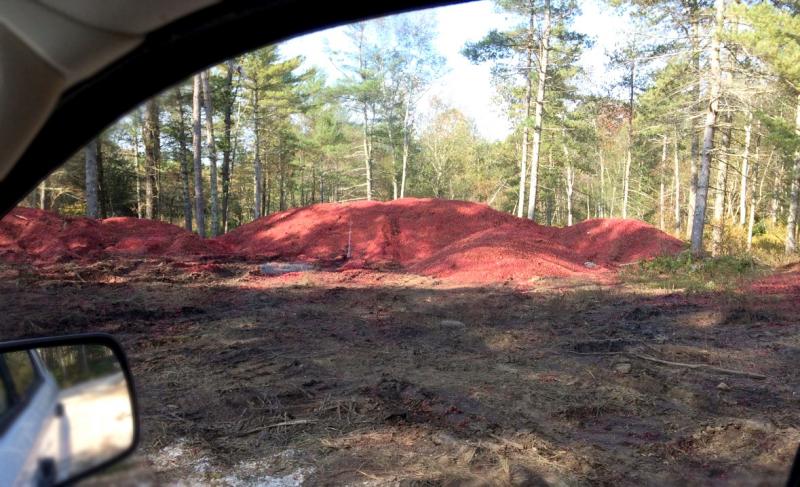Composting site contributes to nitrogen pollution, neighbor complaints
Composting sites on Fisher Road have again grabbed attention from the Select Board and neighboring residents due to noise and smell complaints and growing nitrogen pollution.
Select Board members discussed operations at composting company Kingfisher Corp., located at 756 Fisher Road, at the October 31 Select Board meeting because of rising health concerns about operations there and proposed updates to state regulations.
Select Board Chair Stanley Mickelson aired his frustrations with the site: "Neighbors have called me complaining about the noise, but more importantly, complaining about the smell."
Board member Shawn McDonald agreed: "I wouldn't want to live even two miles from this place [due to the smell]. If we need to prod the state into further action, let's just go after them legally.”
Board of Health Director Chris Michaud, who has been in discussion with state authorities, said there are six composting sites in town. Three of them are regulated by the state Department of Environmental Protection, while the other three are regulated by the state Department of Agricultural Resources. The two use different regulations, he said, explaining that MassDAR regulations don’t necessarily address the health and environmental concerns covered by DEP regulations.
This is problematic for Dartmouth because — although the composting operation is within legal rights defined by the DEP and the DAR — the composting sites could be contributing to higher nitrogen pollution in the Slocum River area, said Town Administrator David Cressman.
In 2014, MassDEP updated its regulations, so while it is too late for Michaud to offer input there, he has suggestions for MassDAR as it works to update.
“Here in Dartmouth, composting has the ability to impact stressed watersheds from nutrient impairment and both public and private drinking water supplies,” wrote Michaud to a MassDAR director.
Additionally, Michaud said Dartmouth is part of “cranberry country.” While decomposing seafood is usually the culprit for funky odors, tons of discarded cranberries get hauled into town for composting, and the rotting fruit also takes on an unpleasant smell.
“It gives you a Fig Newton smell. You know, you want to eat a Fig Newton, but do you want your house to smell like a Fig Newton?” asked Michaud.
The Select Board encouraged Michaud to "keep the pressure on" the state while Cressman suggested the Buzzards Bay Coalition get involved to address the nitrogen pollution.
Kingfisher owner Phillip DeMoranville said complaints about his property stem from prior issues that neighbors disagreed with.
“They were dead set against the solar field,” he said, explaining that neighbors who contested his putting solar panels up are still bitter.
“The majority of people don’t complain. We’re in the process of making the place flawless,” DeMoranville said.
In October 2015, Kingfisher Corp. received a notice of non-compliance from the state for “large piles of shells with meat still attached,” “odorous sand” from a seafood processing plant in New Bedford, and “stockpiles of cranberry waste,” that did not comply with DAR regulations.
Another composting site — located at 564 Fisher Road and owned by Wilfred Francis — was fined $430 by the DEP in March 2015 for operating without a general composting permit. That has since been resolved.
A composting site at 435 Highland Avenue received a notice of non-compliance for acting as a dumping ground and transfer station, which does not fall under its DAR permitting.
The other three composting sites are on Hixville Road, Smith Neck Road, and Russells Mills Road.












